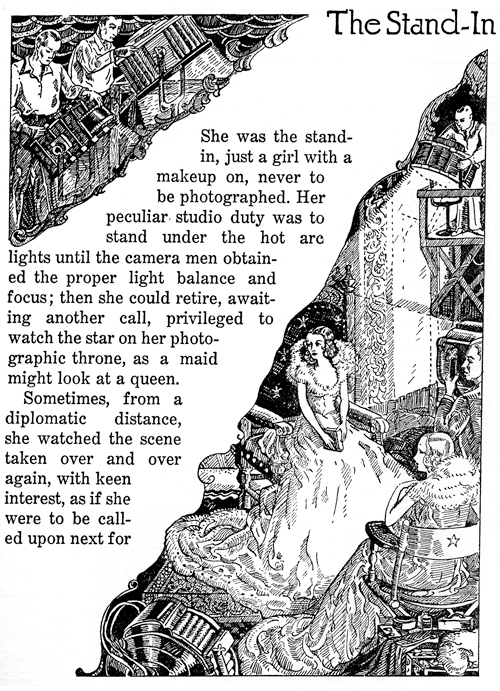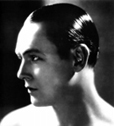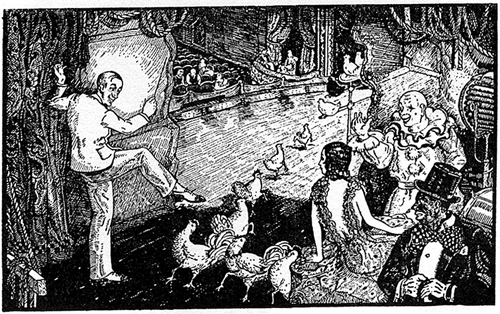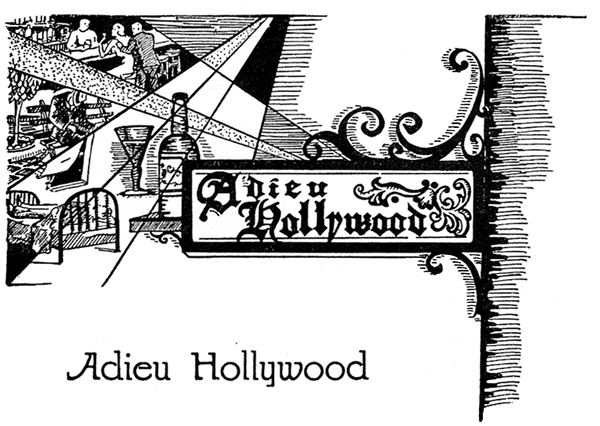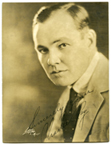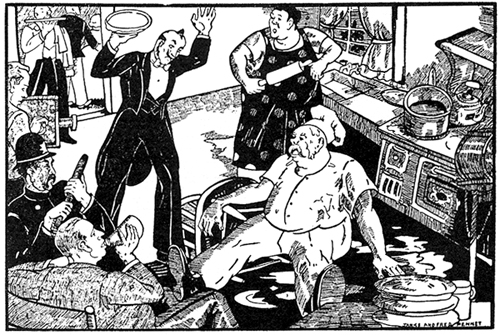The days remaining in our April fundraising drive are dwindling down. If you’re even an occasional listener, help us pay the annual bill to our streaming provider. $40 covers an entire month, but literally any amount is appreciated. If you like our toe-tapping tunes, don’t take them for granted. Let us hear from you by clicking the link below and sending us a little love via Paypal.
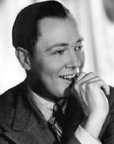 Charles Ray was a popular juvenile star in the 1910s and ’20s, but by the ’30s, his career was on the rocks, and he turned to writing. Here’s another in a series of offerings from his book, Hollywood Shorts, a collection of short stories set in Tinseltown.
Charles Ray was a popular juvenile star in the 1910s and ’20s, but by the ’30s, his career was on the rocks, and he turned to writing. Here’s another in a series of offerings from his book, Hollywood Shorts, a collection of short stories set in Tinseltown.The studio gates swung open wide to admit a stately car. Disdaining the action, the studio cat jumped into the gateman’s cushioned chair and sat like a king upon his throne. For a moment he wrestled with hate, then venom won. He lifted his percussant tail high into the air, and with a follow-through stroke to shame any golfer, gave it a quick nuts-to-you snap at the limousine housing the unpopular star.
Blackie felt better. This antipathy had continued ever since he had been borrowed from the gatekeeper to appear in the kitchen scenes of a motion picture. Later, a few fan letters arrived, addressed to Blackie, the Studio Cat. Some of the stars on the lot had laughed at the idea of a cat getting fan mail, which made existence unbearable to Blackie. He would not go on the stages any more, but he would go under them. He would never act again, but he would snap his tail at the egotistical offenders.
He was a wise cat; he had seen plenty of changes on the lot in a few short years. No one had roamed the lot as long as he. They came and they went, made their mistakes as silly humans do, and were seen no more.
Even now, he could but lift an eye to the top of the administration building and see the manifestation of human stupidity.
Someone in charge had forgotten to turn the switch that extinguished the huge electric sign. It was past 9 a.m. Stockholders’ money was being wasted as the sign blinked and flickered in the sunlight, spelling out Metro-Goldwyn-Mayer with intermittent flaring initials: M-G-M.
With the utmost contempt, Blackie turned his attention to his morning titivation. First, he lifted his jet-black fur, with an eye for fleas, and then pasted it down with liquid artistry most amazing.
“Meow,” called a restaurant cat from the Greasy Spoon Hash House across the street, and included the password.
She pushed her fat hulk through the iron bars of the gate and slunk along the casting-office wall, slowly giving herself a salt rub on the rough stucco surface. Then too there was another reason for tarrying. She really could not enter the sanctum of the regal studio cat without proper welcome. The studio cat wasn’t exactly high hat, but his hauteur was occasionally cataphractic. And so the restaurant cat poised herself at a safe diplomatic distance from the gateman’s chair, repeated the password, and sat on her haunches waiting patiently, blinking both eyes for needed occupation.
Presently, after giving himself a thorough caticure, Blackie pronounced a good-morning caterwaul in pleasant enough tones as to make the coveted invitation valid.
Approaching perfunctorily, the restaurant cat moved in front of the gateman’s chair, salaamed like a courtier respecting the throne, and whispered for court information.
“How’s tricks? Any new scandal?” she gossiped.
“Nothin’ to chew on,” Blackie replied as if bored. “There hasn’t been a scandal in a hell of a while. Will Hays is very active again, you know, politics and all that. By the way, I’m going to a little cleaning up of the studio on my own, tonight. I’m giving a banquet under stage four at midnight.”
“Really? How nice.”
“Yes, if you care to join, please say so at once. It will be a sit-down supper; so naturally I don’t want an odd number. I’m not at all superstitious, but my guests, you know—I don’t want thirteen.”
“You said a mouthful!” The restaurant cat licked her chops. “Then I’ll see you after twelve?” she punned and was sorry.
The studio cat rolled his eyes immorally, forcing the restaurant cat to leave his presence.
At nine the next morning, after a night of righteous debauchery, the cats sat in the same positions by the entrance gate, discussing the night’s orgy in low-toned confidence.
The studio cat cast his good eye upward, and again noted the stupidity of human beings. The incandescent bulbs in the huge sign over the administration building were blinking uselessly in the broad daylight, spelling out Metro-Goldwyn-Mayer after each flash of the initials: M-G-M.
“Well, ol’ thing,” Blackie wisecracked to the restaurant cat, “M-G-M may mean Metro-Goldwyn-Mayer to humans, but to me it means Mighty-Good-Mice.”
< Read "The Stand-in" | Read “Vanity” >


